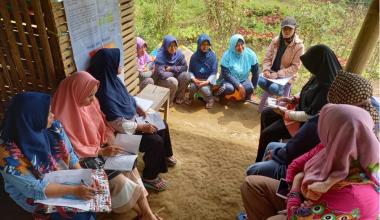Fairness is characterized by equity, respect, justice and stewardship of the shared world, both among people and in their relations to other living beings.
This principle emphasizes that those involved in organic agriculture should conduct human relationships in a manner that ensures fairness at all levels and to all parties - farmers, workers, processors, distributors, traders and consumers. Organic agriculture should provide everyone involved with a good quality of life, and contribute to food sovereignty and reduction of poverty. It aims to produce a sufficient supply of good quality food and other products.
This principle insists that animals should be provided with the conditions and opportunities of life that accord with their physiology, natural behavior and well-being.
Natural and environmental resources that are used for production and consumption should be managed in a way that is socially and ecologically just and should be held in trust for future generations. Fairness requires systems of production, distribution and trade that are open and equitable and account for real environmental and social costs.


